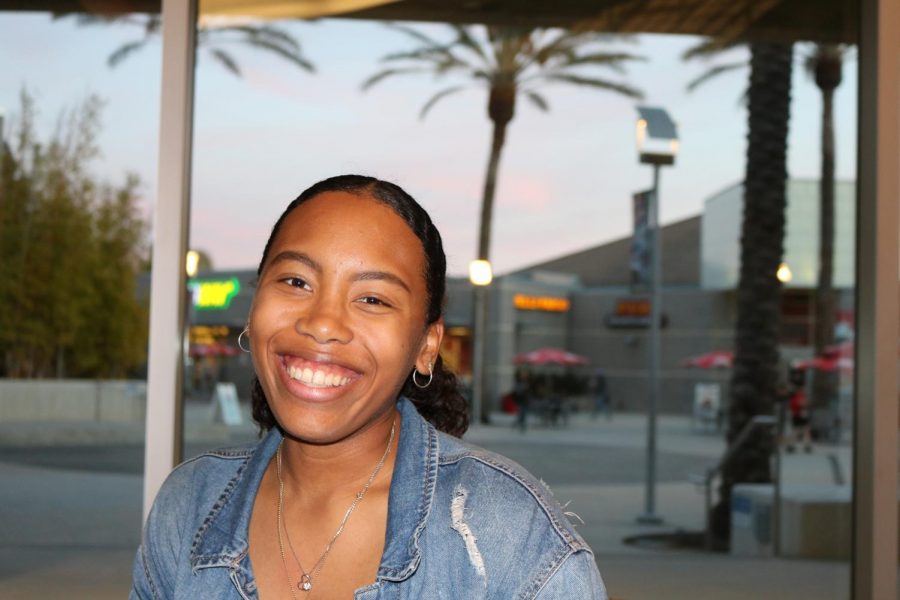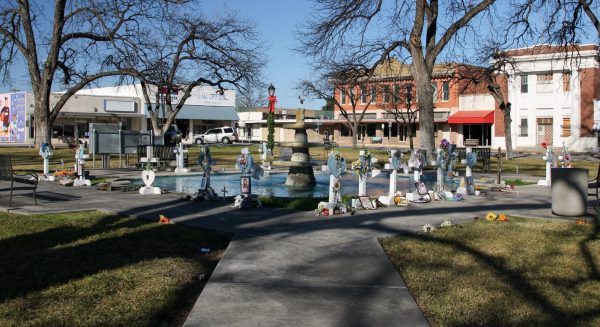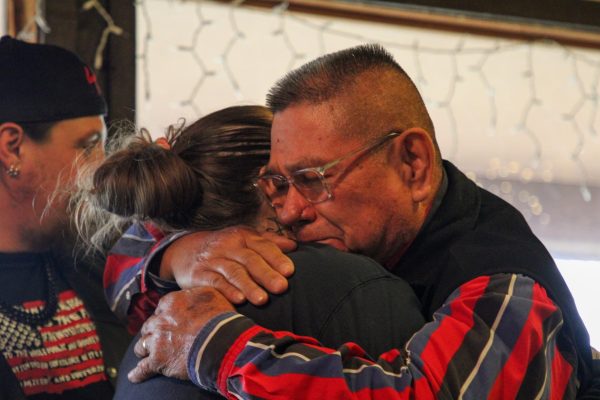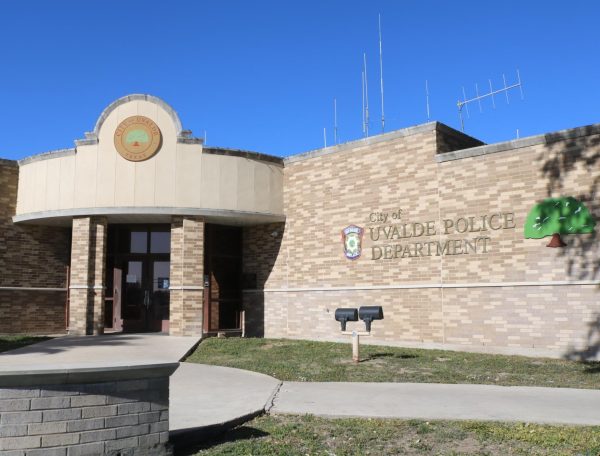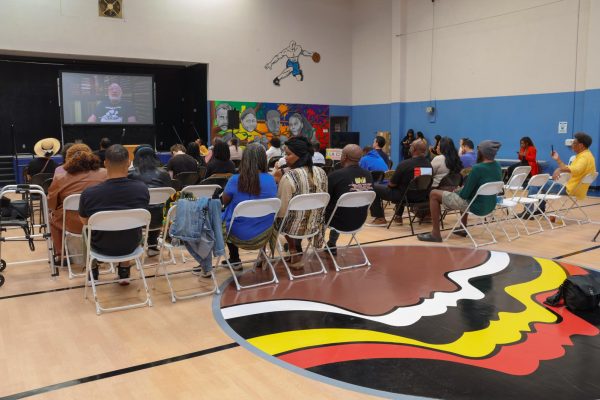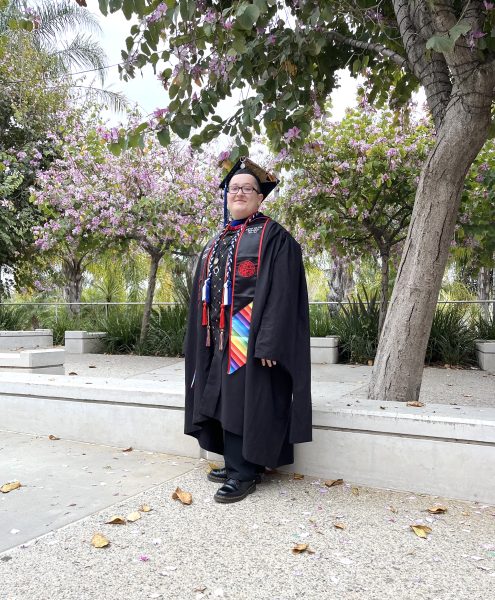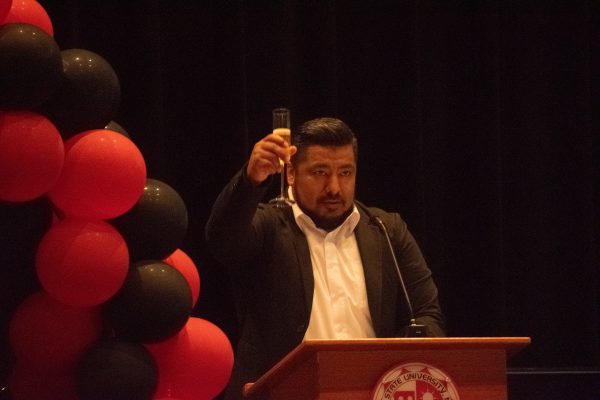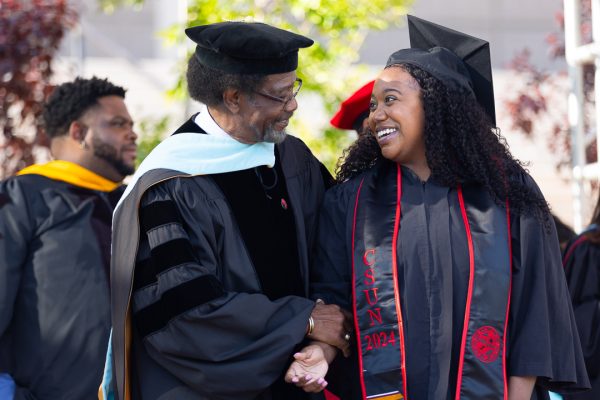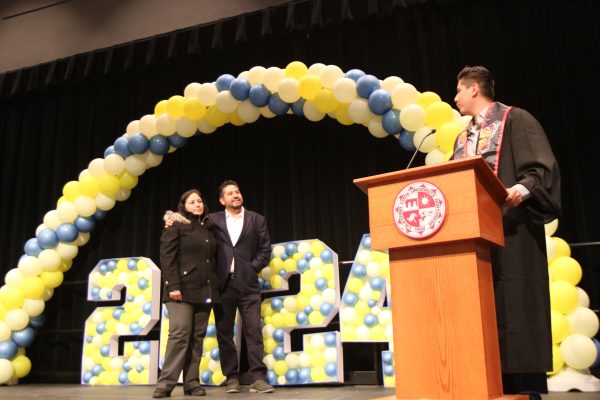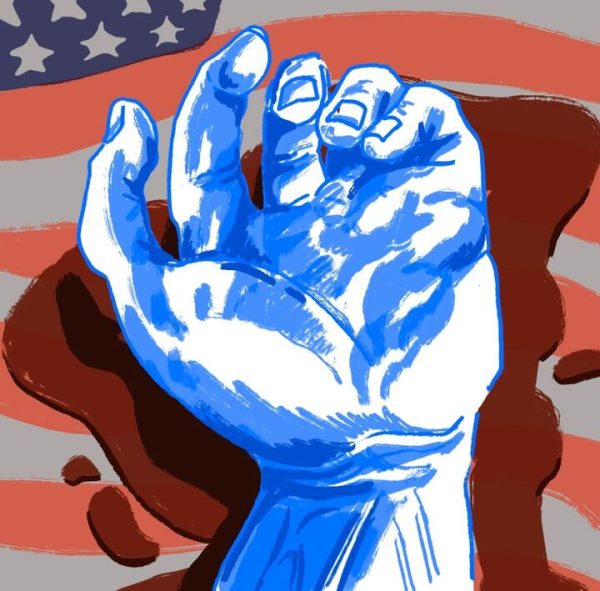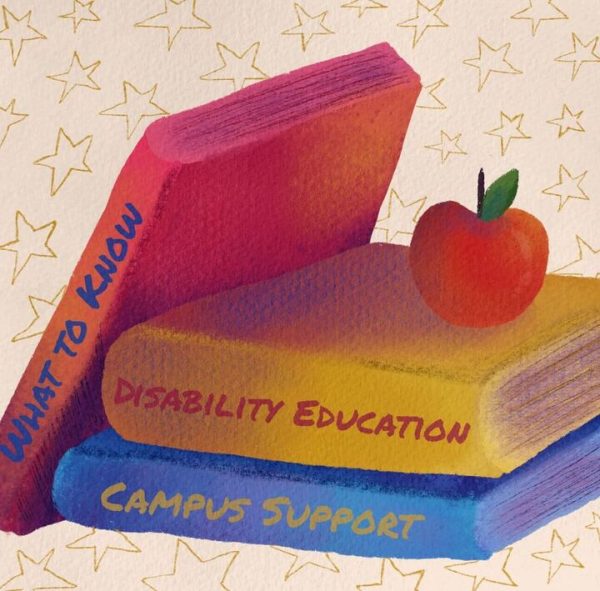Chatroom Q&A: Juggling the reserves and college life
February 19, 2020
Brianna Lea is a junior majoring in kinesiology at CSUN who also doubles as a hospital corpsman in the Navy. She shared her story about how she is able to juggle both and gives advice to students who are unsure if a military path is the right one to take.
Q. Why did you decide to join the Navy?
I did it mainly because I’ve always wanted to do something in the medical field. Some of the recruiters came to my class and talked to us. As they were talking about it, they mentioned free education, they mentioned the different career paths you could take throughout the military. Through them explaining, it seemed like an easier way to get there and it was my senior year of high school\; I just wanted to make money and get to my job. What I did not realize at the time is that it’s more than that. It’s a lot of time constraints, it’s a push and pull. I’m only a reservist, so I’m not active full time, so I have to fit the Navy into my daily schedule. Making the military life work with my civilian life is complicated, but manageable. Being a reservist, you only work one weekend a month, but you have to work other weeks too on your own time.
Q. How was the process of enlisting?
You have to take an ASVAB, Armed Services Vocational Aptitude Battery, the highest you can score is about 60. The higher you score in that test, the more options that are placed in what jobs you can get. I believe the highest for Navy is 30 and the highest for Army is around 18. It basically opens doors to see what jobs you can apply for. After the test, you have to set up your physical date and this is an all-day process. They wake you up at around 3 a.m. and we were on the bus to MEPS, Military Entrance Processing station, right after breakfast. It’s one big office building where all the branches meet up. It’s a whole day physical, so I couldn’t go to school that day\; it’s a hearing test, a vision test, they draw blood and they just make sure you’re physically able to join for bootcamp. After the physical, that’s where you decide — well, that’s where the officers ask you “What do you wanna be?” I was set on medicine. My job title is hospital corpsman. I didn’t leave until June 2018. By that time, I had done my first year of college and I always say 2018 was the best year of my life. I’m talking civilian-wise, I did well in school and by the time June came, I got to leave for boot camp … I remember through the whole process my parents kept asking if I was sure, but I was getting what I needed and that was a career in medicine … (Through the Navy) I got hands-on experience.
Q. How did you select the Navy of all military branches?
A. Honestly, that was the one that was open. Navy recruiters played a big role. I credit a lot of it to my high school sports medicine teacher, he was in the Navy when he was younger and was constantly telling us good things about the Navy. One day in class, he had recruiters come in and I remember leaving class that day and I told my mom, “Yeah, I think I wanna do it.”
Q. Do you think recruiters are beneficial?
I remember in high school, I was always getting those pamphlets for scholarships and everything. I remember one pamphlet, it said “Give four for four,” meaning give four years to the military and get four years of free school. Money is tight, my mom always asked me to think about it, but I had only seen the military in movies so I didn’t want to fight in the middle of the battlefield. When the recruiters came to my class, I called her immediately\; they sold me.
Q. Do you think there is a bad stigma about the military, especially with students? Why?
Like I previously said, all I knew (about the military) was from movies. I did not want to be fighting in the middle of the battlefield. What they don’t tell you is that there is so much behind the scenes, there are lists of jobs you don’t think about. Not only that, the average graduation time is 20 years so if you join at 18, guess what? You retire at 38 and you’re set for life. There’s a lot of negative connotations and things these movies do not tell you.
Q. What advice do you have for a student looking to join?
I always say, you can’t go based solely off my experience. I think it’s a great opportunity, but do your research. Mainly just go walk into a recruiting station and ask for help\; they have all the questions and answers that you can think of.
